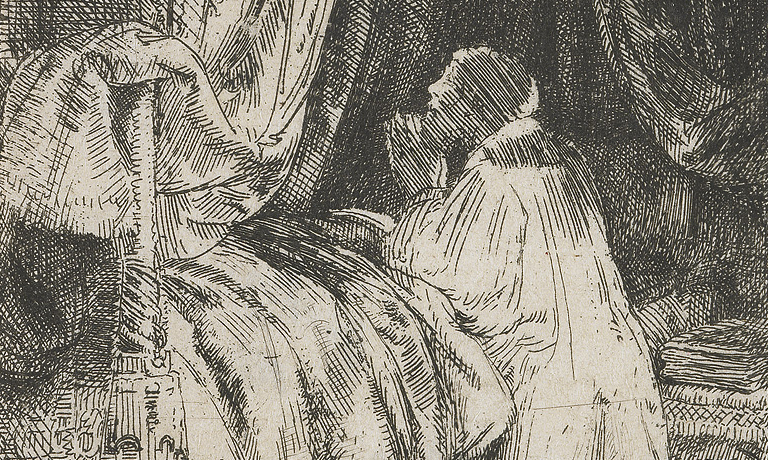We do not pray to change God’s mind. We pray to be one with God. So often we treat prayer like a battle of wills, as though we need to cajole God into doing something he would rather not. This is typically how we read the parable of the friend at midnight in today’s gospel. From this perspective, God comes out looking like a kind of heavenly boss to whom we need to make a pitch for a promotion or more vacation time. This is clearly not how Jesus means for us to interpret his parable. Jesus does not want us to see his Father as a tight-fisted CEO, but as the generous Father that he is: “If you then, who are wicked, know how to give good gifts to your children, how much more will the Father in heaven give the Holy Spirit to those who ask him?” (Lk 11:13).
Even if we could change God’s mind (which is impossible), it would only be worse for us in the long run. God is pure goodness and infinite wisdom. He wants what is best for us, and knows what is best for us much better than we do. The purpose of prayer is not to change God’s mind, but to be one with the God who loves us. That is the reason for everything in the Christian life. If he wanted to, God could do everything himself; nevertheless, in his great love for us, God wants to give us a share in his work, to make us one with him in his activity in the world. In addition to working with him in our outward actions, God also asks us to work with him in our prayers. God could do everything on his own, but there are many things he wants to do because we prayed for them (e.g. the salvation of souls).
If there is any way in which prayer is a battle of wills, it is a battle with our own will as we learn to accept God’s plans for us. For example, when we ask for something, we want it now. It may be, however, that God wants to answer our request only after we have prayed long and hard for it, to reward us for our patience and perseverance. Such was the case with St. Monica, who prayed 14 years for the conversion of her son, Augustine, and became a saint in the process. It may be that God will not answer our request at all because it is not ultimately for our good. Such was the case with St. Paul, who tells us, “Three times I begged the Lord about this [trial], that it might leave me, but he said to me, ‘My grace is sufficient for you, for my power is made perfect in weakness’” (2 Cor 12:9).
Hard though it may be, God asks us to trust that he knows what he is doing. Even if we may not get everything we ask for as soon as we ask for it, we should never doubt God’s loving concern for us. Our Father knows how to give good gifts to his children.
✠
Image: Rembrandt, King David at Prayer







